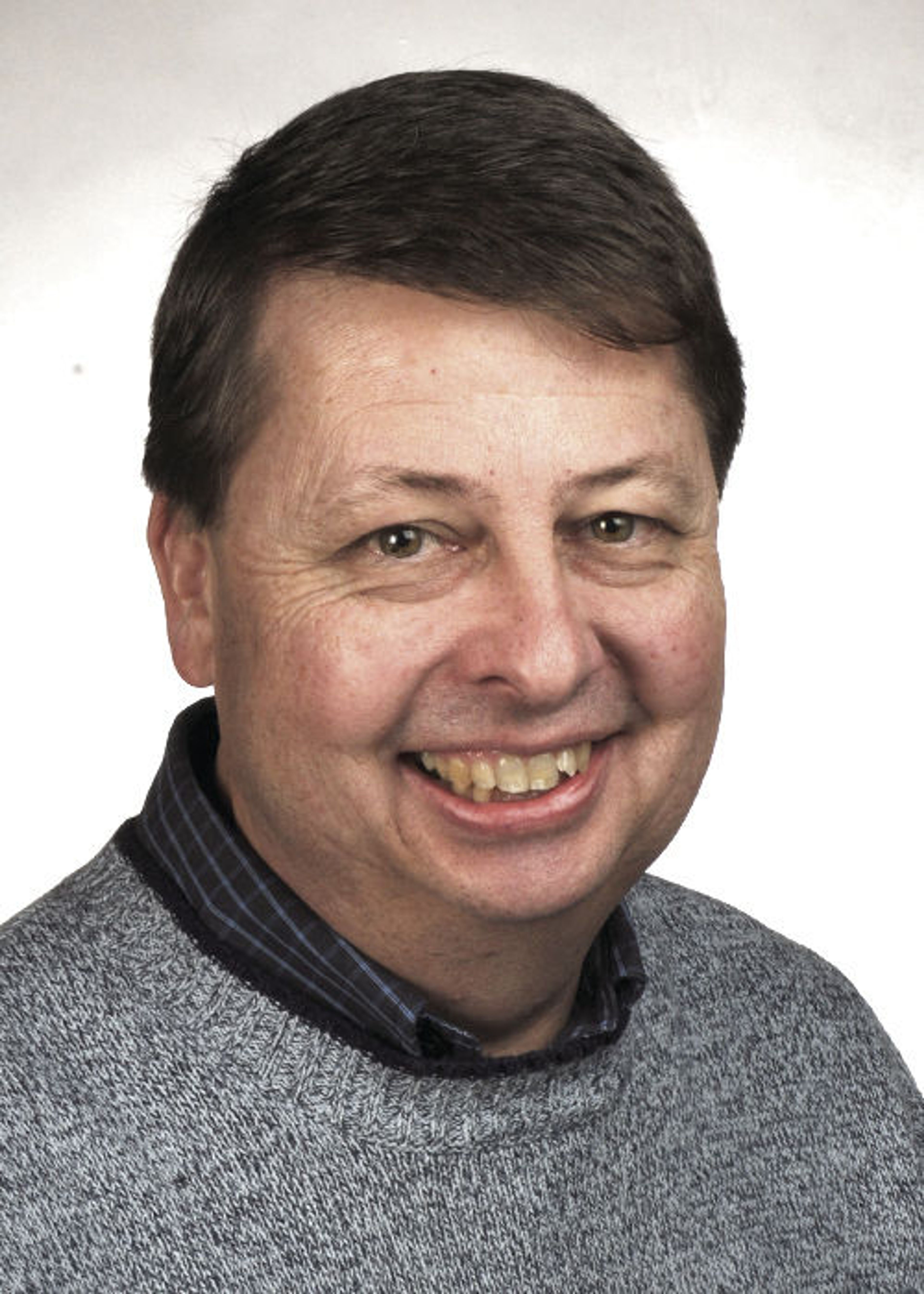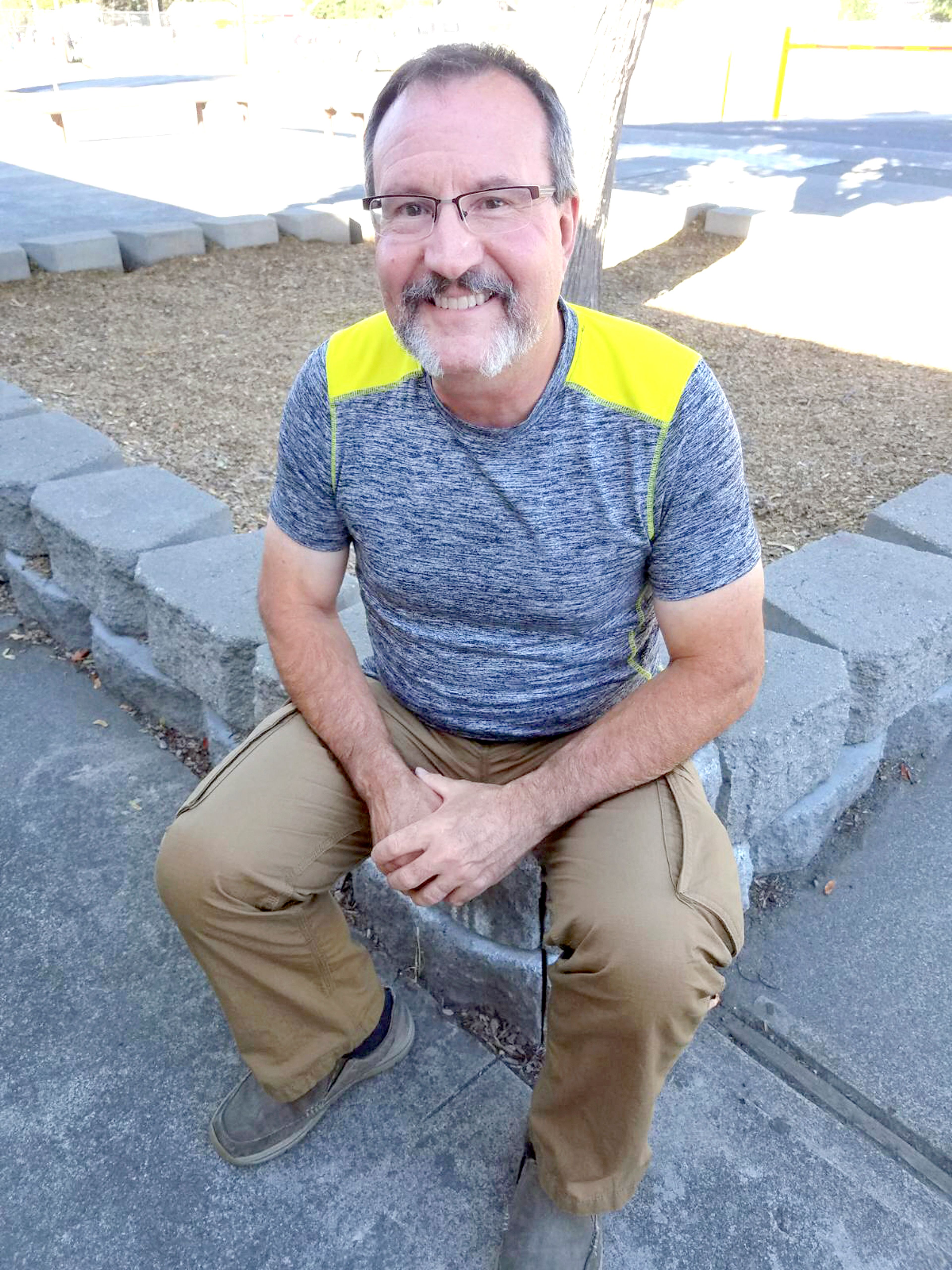Helping others learn to help themselves
Russ Gee enters his final year as special education teacher at Jenifer Junior High
Russ Gee experienced the first this week of what will be a series of last times.
On Wednesday, it was the last first day of school for the longtime special education teacher at Jenifer Junior High School in Lewiston.
After 29 years at Jenifer and 32 years in the field, Gee is ready to call it a career. It promises to be a bittersweet year, but the always positive Mr. Gee is looking forward to what comes next.
Craig Clohessy: Come the first of June and the school year is over, what are you going to be doing?
Russ Gee: You know, people I think are actually worried. It’s like, “What are you going to do?” Well, I’ve always said, “Whatever the hell I want, whenever the hell I want.” But OK, so, I have some hobbies. I like to be in the outdoors. This summer we spent here. (Other summers they have gone to China.) ... My wife, who is Chinese, and I spend time with the family there. But this summer was nice. ... My typical thing, I get up in the morning, I grab a cup of coffee, first I read the paper, no kidding. And then I go outside. And I have — we call them our children — they’re our garden vegetables. I’m growing some weird Asian vegetables that you can’t buy in the grocery stores here, stuff that my wife is used to working with. And you know, I love to hunt and fish and do whitewater rafting. I missed a rafting trip this past weekend because of work commitments. So when I retire, I won’t have to miss those. I’d really like to get a pontoon boat, something flat that I could walk around on, my wife could walk around on. We can fish in Dworshak together; she loves to fish. And travel. We’ll be able to go to China when it’s not so bloody hot. In the summertime it’s very hot and humid, so we’ll be able to go in the fall and spring, even in the wintertime. Those are some immediate plans. And if I get bored, I tell people don’t worry, OK? Because I would love to maybe get involved with Habitat for Humanity. I like to build things, but I’ve never been involved in a building project from bare ground up. I would like to see that done. Not that I ever want to do it for myself or anything; I’d just like to learn how it all comes together.
CC: What got you interested in special education as a career?
RG: ... I grew up in Sandpoint, Idaho, and I had a playmate down the street who had a developmental disability. I still have occasional contact with him now. He’s an adult living semi-independently, has a job and everything. But at the time, you know, kids will tease and I have to admit, I probably teased him too. But I got to a point where I became a bit of a defender for him. We’ve been friends ever since. If someone would’ve told me back in high school, “I’ve looked into a crystal ball, and I see that you’re going to be a teacher,” I would’ve laughed. No way. I went to the University of Idaho and really didn’t know what I wanted to do. ... I went into journalism because I liked to write, I knew that. And I got involved in political science because I had aspirations that maybe someday I would become a lawyer. It came time to graduate, and my friends were all goading me to take the law school entrance exam. And I really didn’t want to. I thought I would become a government teacher, perhaps, instead of a lawyer. They kept on me, and I thought, “Oh, what the heck, I’ll take the test.” ... I passed it, then I thought, “Oh my God, maybe I should go to law school.” ... I went to law school, and I lasted the first half of the year, and then I got very sick. I got a double ear infection, terrible sinus infection, and it just knocked me down. I went to talk to the dean, and he let me go. He said come back when you’re healthy, which I never did. I don’t regret it. I went back to school (with the thought) I might like to be a government teacher. ... I had to do some student teaching. ... I had some students with disabilities in my class. When I came back to the University of Idaho, I thought I really need to prepare myself for students with disabilities in my class. I need to know more. So I took a basic special education class ... and that was the final hook that got me into special education.
CC: You’ve been teaching for 32 years, 29 of those at Jenifer Junior High. What’s it like spending the majority of your career at one school?
RG: ... Really the reason I’ve been here for 29 years is because of the people I work with. I’ve had opportunities to move to other schools, and I’ve considered doing that at times, and then it was almost like waking up out of a stupor: It’s like, “Wait a minute, why would you do that? You’re happy here. Why do that?” And I’m really happy I stayed here. I love the people I work with, and I love the kids. We have great kids here at Jenifer. ... I’m out in the community and run into students, either former students of mine or former students of the school that I know, and they know me. I’ll think that, “Oh, it’s only been a couple of years since they were here,” but then I find out that it’s been 10 years, and they have a family and a house and a career or a job. ... It’s pretty amazing.
CC: What did you see as the single biggest challenge to being a special education teacher?
RG: I’ll be the first to admit, I’m sometimes not the most patient person. But you learn. You learn how to do that. And I think probably the biggest challenge is staying with it, because it’s a pretty high burnout career. There’s a lot of paperwork, sometimes a lot of heartache. ... Anybody that knows me ... knows there have been times when I seriously considered not doing this anymore. But I’m very glad that I didn’t give up.
CC: How did you know when you were successful?
RG: I didn’t know. I still don’t know. But what makes me happy is when former students stop me in the store, on the street, even parents of former students. What really is nice is when I see that they’ve been successful and they’re happy and their lives have developed the way they wanted them to. I think that’s a measure of success in any teacher. Even having a small impact, you hope you’ve impacted at least one person out there. And I think that’s probably how you gauge your success. ...
CC: Outside of your career as an educator, you were involved in the formation of Fairview Terrace Apartments, which were built to provide needed housing for those with developmental disabilities.
RG: Boy, that was a neat thing. I was almost a brand new teacher here at Jenifer and I had a student whose mother was involved in the community, and she was a real go-getter, Maxine Sullivan. There was a lack of housing, and she started this group and got these parents together and these people from even as far as Orofino to try and get something going so we could have some housing for independent living for people with developmental disabilities. ... She came to me and asked me if I would help with part of that. ... I got involved and stayed with it up until I just got off the board (after 25 years) in March. ... It was really bittersweet for me to get off the board, but I felt it was time. And we have some great board members, so I have all the confidence in the world they’re going to do a fantastic job well into the future.
Clohessy is managing editor of the Lewiston Tribune. He may be contacted at cclohessy@lmtribune.com or (208) 848-2251.










